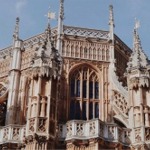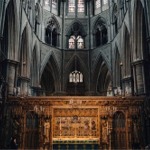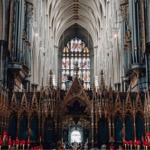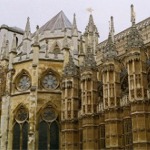Westminster Abbey Photo Gallery
Home > Photos from England > Westminster Abbey Gallery
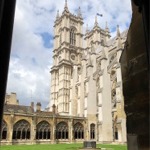
The Southern Facade
The flying buttresses on the southern facade of Westminster Abbey.
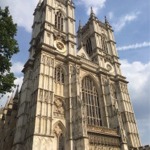
The Western Facade
The light from a bright sunny day in London bathes the western facade of Westminster Abbey in a beautiful warm palette of colours.
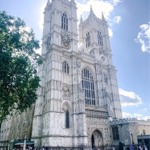
The Western Facade
A beautiful alternate view is created by the sun behind the western facade. Brilliantly illuminated clouds and blue sky contrast with the facade's shadowed palette.
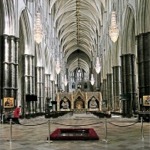
Westminster Abbey Nave
The Nave and vault ceiling exhibit gothic architecture, and we also see Sir Isaac Newton's monument and choir screen.
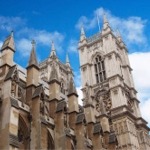
The Northern Facade
An attractive low-angle photograph of Westminster Abbey's northern facade showing its buttresses and Gothic architecture.
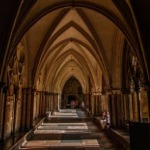
Westminster Abbey Cloister
What a gorgeous photograph of a cloister showing the elaborate gothic architecture and the ribbed vaulted ceiling.
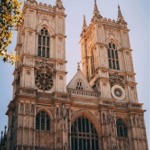
The Western Facade
There is no doubt that Westminster Abbey is recognizable from this frontal view.
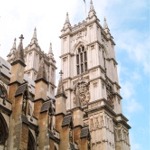
The Northern Facade
Westminster Abbey stands immemorial, a testament to a bygone era and the people who started building it more than 700 years ago.
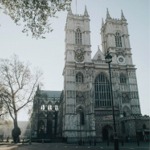
The Western Facade
There are quite a few images of Westminster Abbey's western facade in this gallery because each photo portrays a unique and interesting view of the building.
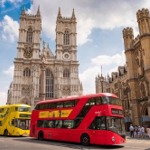
The Western Facade
This is a colourful photograph showing two busses and many people on a lovely fine sunny day in London.
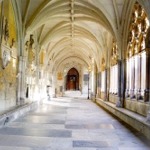
Westminster Abbey Cloister
A cloister showing the elaborate gothic architecture, the ribbed vaulted ceiling and the flagstones that have born witness to the passing of countless generations.
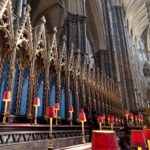
The Quire
Music has reverberated within these hallowed halls for over seven hundred years and in the 21st century, this tradition continues unabated with new voices.
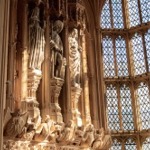
Statues in Westminster Abbey
Statues of saints in the Henry VII Lady Chapel in Westminster Abbey.
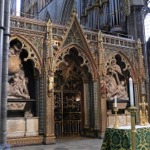
Choir Screen and Monument
Here we see the choir screen and monument to Sir Isacc Newton whose grave is in front of the screen.
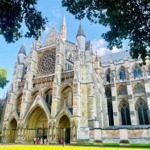
The Northern Facade
The majestic beauty of the northern facade in a beautiful palette of tans and browns set against the blue sky of a lovely summers day in London, England.
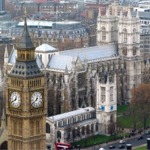
Westminster Abbey & Big Ben
People who are unfamiliar with London can see the location of Westminster Abbey in relation to Big Ben which is next to the Palace of Westminster and Westminster Bridge.
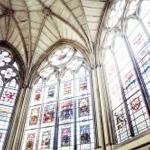
The Chapter House
The Chapter house was a place of meeting where monks gathered with the Abbot to pray and discuss the day's business, etc.
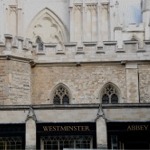
Westminster Abbey Sign
This is a lovely photograph of a sign. The photo captures a smorgasbord of architectural detail at the Abbey.
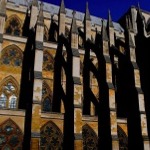
Flying Buttresses
"Loved the way the sunlight caught the exterior buttresses on Westminster Abbey London. Added contrast to emphasise the shadows and tried to keep in the repeating patterns".
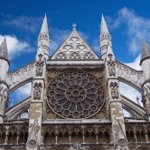
The Northern Facade
This is a low-angle photograph showing lots of detail in the northern facade.
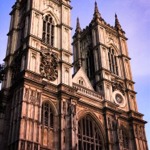
The Western Facade
The soft glowing light from the sky, when the sun is below the horizon, creates the magnificent radiance in this photograph of the western facade.
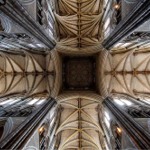
Ribbed Vaulted Ceiling
We see the stunning ribbed vaulted ceiling and Gothic architecture in this beautiful photograph.
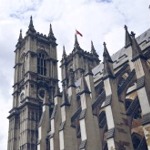
Flying Buttresses Southern Facade
This low-angle photograph shows exterior flying buttresses on the southern facade.
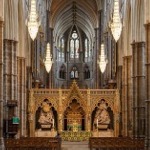
The Nave
In a stunning palette of browns, tans, and gold, this photograph captures the Gothic architecture in the nave and the ribbed vault ceiling.
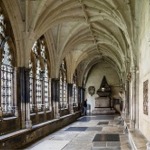
The West Cloister
Dating from the medieval period, Westminster Abbey's West cloister has weathered the test of time well.
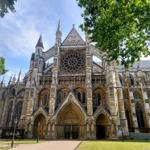
The Northern Facade
Central to this very attractive photograph of the northern facade is the north door.
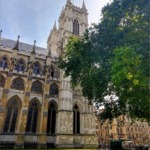
The Northern Facade
The western end of the northern facade is looking great on this lovely fine sunny day.
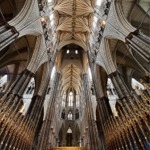
The Quire & Vault Ceiling
The Quire, the ribbed vault ceiling, and the intersection of the North and South Transepts.
Westminster Abbey
Westminster Abbey, formally titled the Collegiate Church of Saint Peter at Westminster, is a large, mainly Gothic abbey church in the City of Westminster, London, England, just to the west of the Palace of Westminster. It is one of the United Kingdom's most notable religious buildings and a burial site for English and, later, British monarchs. Since the coronation of William the Conqueror in 1066, all coronations of English and British monarchs have occurred in Westminster Abbey. Sixteen royal weddings have occurred at the abbey since 1100.
According to a tradition first reported by Sulcard in about 1080, a church was founded at the site (then known as Thorney Island) in the seventh century, at the time of Mellitus, Bishop of London. Construction of the present church began in 1245 on the orders of Henry III.
The church was originally part of a Catholic Benedictine abbey, which was dissolved in 1539. It then served as the cathedral of the Diocese of Westminster until 1550, then as a second cathedral of the Diocese of London until 1556. The abbey was restored to the Benedictines by Mary I in 1556, then in 1559 made a royal peculiar — a church responsible directly to the sovereign — by Elizabeth I.
The abbey is the burial site of more than 3,300 people, usually of prominence in British history: at least 16 monarchs, eight prime ministers, poets laureate, actors, scientists, military leaders, and the Unknown Warrior.
From Wikipedia, the free encyclopedia.



